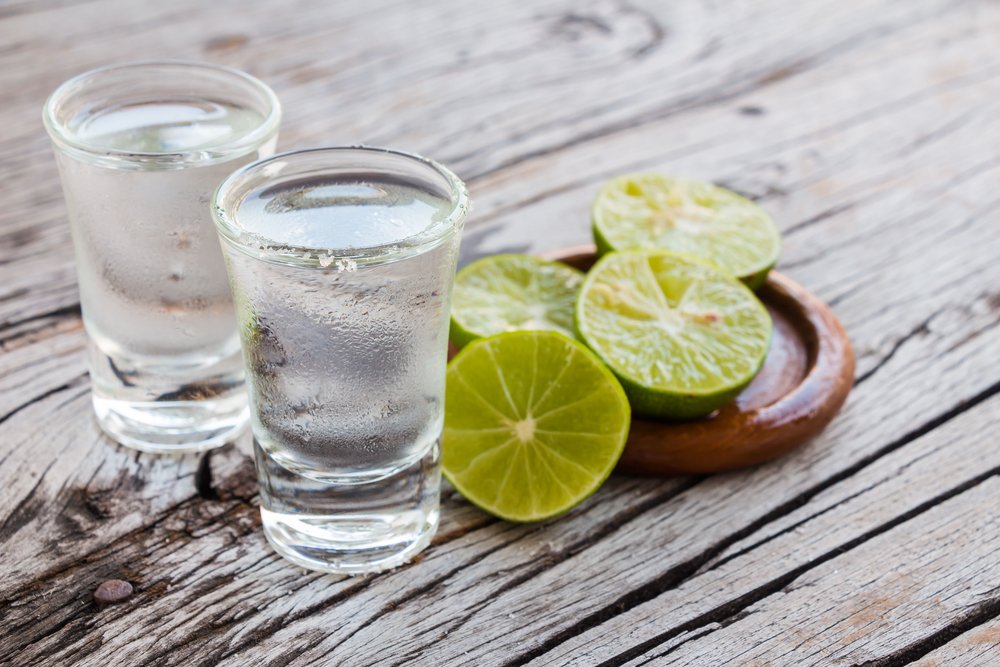Should You Be Wine Wary? What These 3 Alcohols Really Do To Your Body

Who doesn't enjoy a glass of vino at the end of a long day? Besides helping you unwind, certain drinks can sometimes provide health benefits, too. Of course, there are important drawbacks to consider. The next time you're looking for a drink, consider the positive (as well as the potentially harmful) effects of these three popular beverages.
Wine

You've likely heard that having a glass of red wine a day can be good, but is it true? According to a university study, red wine can have positive effects on physical performance, muscle strength, and heart function. This is because of a natural compound in red wine (as well as some nuts and fruits) called resveratrol, which is an antioxidant that helps fight and prevent free radicals from damaging cell oxidation and causing heart disease.
Most wine, however, contains unnatural additives due to barrel preservation and insect control purposes. These chemicals can include sulfites, which might be the culprit behind many wine-related allergies. If you're prone to headaches after drinking a glass of wine or two, try a sulfite-free or low-sulfite wine.
Beer

Beer may be more beneficial to our health than we realize. A key component of beer is hops, which contains powerful antioxidants like flavonoids. This means a moderate consumption of beer can help reduce the risks of certain illnesses like heart disease and diabetes. Beer also contains HDL, a "good" cholesterol, which may also help improve cardiovascular health.
Beer has a few drawbacks, though. It can exacerbate asthma and gout. Plus, drinking an excess amount (more than a few glasses per day) can cause hypertension, worsen existing conditions, and even damage the nervous system.
Of course, not all beers are created equal. Different breweries use different ingredients to achieve a variety of flavors, so the health benefits of each brand will vary.
Vodka

Vodka may not be for every adult, but when consumed neat, it does offer some interesting health benefits. It can help reduce stress, serve as a mild anesthetic, and even relieve toothaches! Its clean composition means that vodka's virtually free of carbohydrates, sugar, fats, and other harmful chemicals. So, if you still want to enjoy some alcohol when you're on a diet, vodka might be the drink for you.
As with any alcohol, consuming too much vodka can have negative effects on your body, particularly your liver. Long-term drinking can lead to dehydration and cirrhosis, so always be mindful of how much you drink.
While alcohol can be great for both social and health reasons, moderation goes a long way. Long-term over-consumption can lead to serious side effects, so it's important to keep an eye on how much you have when you're out with your friends or relaxing at home. With that in mind, let's toast to good health!
Photos: fototip / Shutterstock.com, Matt and Martin, Jay Mantri, Still AB / Shutterstock.com
Healthy Eating
- Healthy Snacks
- Healthy Meals
- Healthy Recipes
- Sports Nutrition
- Nutrition and Special Diets
- 21 Day Fix
- 5 Popular Diet Similarities
- Alkaline Diet
- Anti-Inflammatory Diet
- Calorie Counting
- Carb Cycling Diet
- Celiac Disease
- Cholesterol
- Clean Eating
- Crohn's Disease
- DASH Diet
- Detox Diet
- Diabetes
- Diabetes Diet
- Diet Pill Dangers
- Fat Burning Foods
- Gluten-free Diet
- Glycemic Index
- Heart Health
- High Blood Pressure Diet
- High Fiber Foods
- How to Eat Healthy
- How to Lower Blood Pressure
- Hypertension
- IBS Diet
- Ketogenic Diet
- Liquid Diet
- Low GI Foods
- Low-Carb Diet and Foods
- Low-Fat High-Carb Diet
- Mediterranean Diet
- Mediterranean Diet Foods
- Military Diet
- Nutrition Labels Explained
- Paleo Diet
- Raw Food Diet
- Superfoods
- Sustainable Weight Loss
- Thrive Diet
- Vegan Diet
- Vegetarian Diet
- Weight Loss Shakes
- Whole30
- Vitamins, Minerals & Nutrients
